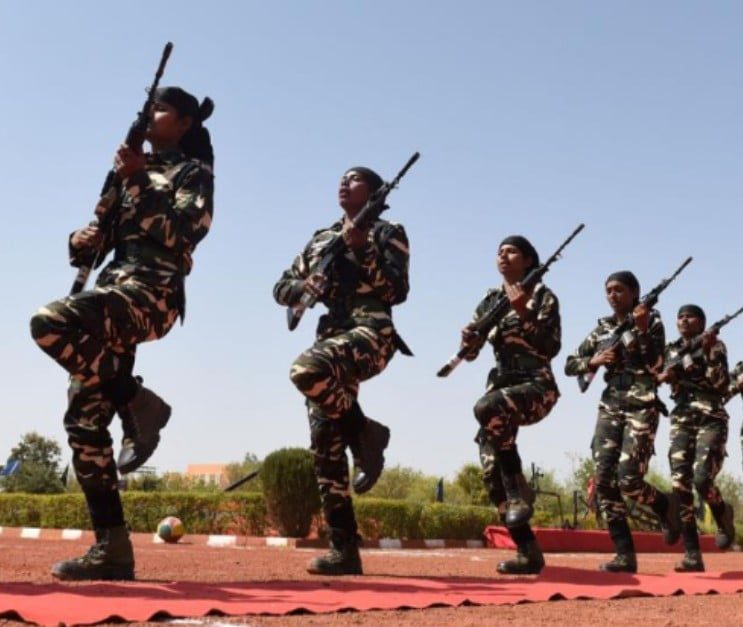Strategic Technological Advancements
In a bold stride towards modernizing its capabilities, the Indian Army has earmarked 16 pivotal technology clusters designed to enhance its readiness for future conflicts. This strategic initiative seeks to integrate both emerging and advanced technologies to transform the Army into a technologically proficient force. By focusing on a diverse array of tech sectors, the Army aims to bolster its operational effectiveness and maintain a competitive edge in the evolving landscape of modern warfare.
Tech Clusters for Modern Warfare
The 16 identified tech clusters encompass a broad spectrum of cutting-edge fields. Among these, certain clusters are centered on emerging technologies that are still in conceptual stages. These include innovations in stealth and anti-stealth technologies, advanced sensing and propulsion systems, nanotechnology, and hypersonic technologies. Additionally, the clusters will address chemical, biological, radiological, and nuclear (CBRN) advancements. Global research is actively progressing in these areas, and several foreign militaries have already implemented similar technologies.
Other clusters target critical domains such as cyber warfare, space operations, automation, and digitization. The integration of quantum computing, Internet of Things (IoT), and advanced telecommunications technologies like 5G and 6G will be pivotal. Directed energy weapons, utilizing focused electromagnetic energy to neutralize enemy systems, and counter-unmanned aerial systems will also be key areas of development.
Furthermore, the Army plans to explore Augmented Reality (AR) and Virtual Reality (VR) technologies. These will be employed to simulate combat scenarios, enhancing tactical training and strategic planning. Unmanned ground and aerial systems will be developed for surveillance and offensive capabilities, while blockchain technology will bolster data security and streamline supply chain management.
Implementation and Future Outlook
The Indian Army’s commitment to integrating niche technologies is underscored by recent developments. Last month, the Army requested detailed information from its commands regarding officers with expertise in these technologies. This initiative is part of a broader effort to align military capabilities with the evolving demands of modern warfare.
The Army Commanders Conference held in April highlighted the urgency of procedural transformation to accommodate these advanced technologies. Key decisions included the establishment of Army Design Bureau Cells at Command Headquarters and the creation of a dedicated fund for testing and evaluating these technologies. Additionally, a revised human resource management policy will be implemented to ensure that personnel are adequately trained and equipped to handle these new technologies.
This strategic approach aims not only to integrate these technologies but also to internalize them within the existing framework of the Army. The focus on innovation and self-reliance reflects the Army’s dedication to building a future-ready, tech-enabled force capable of addressing contemporary and future threats effectively.
Summary
The Indian Army’s initiative to integrate 16 technology clusters marks a significant advancement in its modernization efforts. By focusing on diverse tech areas, including robotics, energy weapons, and advanced sensing systems, the Army aims to enhance its capabilities for future warfare. This strategic move highlights the Army’s commitment to innovation, self-reliance, and technological excellence.
Key Learning Points
| Point | Description |
|---|---|
| Initiative Date | July 27, 2024 |
| Focus | Integration of 16 tech clusters for future warfare |
| Key Technologies | Robotics, energy weapons, cyber warfare, quantum computing, AR/VR |
| Implementation Steps | Establishment of Army Design Bureau Cells, revised HR policies, dedicated fund |
| Strategic Goals | Enhance operational effectiveness, maintain technological edge |
| Recent Developments | Request for officers with tech expertise, procedural transformation |
Soumya Smruti Sahoo is a seasoned journalist with extensive experience in both international and Indian news writing. With a sharp analytical mind and a dedication to uncovering the truth, Soumya has built a reputation for delivering in-depth, well-researched articles that provide readers with a clear understanding of complex global and domestic issues. Her work reflects a deep commitment to journalistic integrity, making her a trusted source for accurate and insightful news coverage.



